Archives: News and Updates
news-and-updates
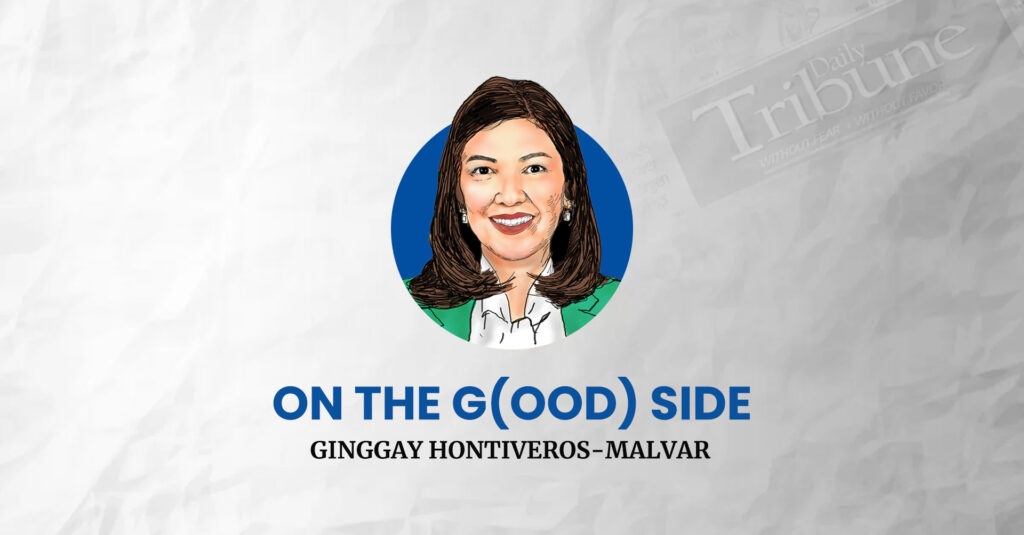
Are we on thin ice?
AboitizEyesThis article was initially featured in the Daily Tribune on April 8, 2024, as a segment of the weekly column titled “On the G(ood) Side,” authored by the Aboitiz Foundation’s President and Aboitiz Group’s FVP – Chief Reputation & Sustainability Officer.
Exploring the world teaches us many things. It was this sense of curiosity and adventure that brought me to Antarctica, the world’s most remote continent, a decade ago.
Surrounded by a vast, formidable ocean, the terrain and seascape elicit both awe and respect. Little did I know that Antarctica would become more than just a destination (and a once-in-a-lifetime personal experience) — it would yield important lessons about our relationship with the environment.
Lesson One: Resilience in the face of adversity
We took off from Ushuaia, the southernmost tip of Argentina, and launched into a crossing of the unpredictable Drake Passage. The two-day naval route rendered me totally bedridden and left me humbled by nature’s power. Yet, upon reaching Antarctica’s shores, I was greeted by its breathtaking beauty and an understanding of our planet’s fragile equilibrium.
Antarctica is home to some of our planet’s most tenacious and resilient creatures (and my favorite species): Penguins. Their capacity to survive in such extreme conditions of frigid seas and unpredictable weather demonstrates the power of adaptation.
And as I kayaked through the cold seas, weaving through glacial ice and penguin territory, the contrast between such power and fragility made me think about our world in its precarious state.
Just as Antarctica’s creatures have adapted, we, too can implement measures to promote resilience. The Antarctic Treaty System, for example, identifies protected areas and promotes international cooperation to reduce environmental impact and safeguard fragile ecosystems.
Lesson 2: Ecosystem interconnectivity
In the bustling urban landscapes of the Philippines, it’s easy to overlook the interconnectedness of our world. However, this reality remains stark.
Antarctica is often viewed as a far-off frontier, far removed from our daily situations. The fact is it plays a vital role as the Earth’s “refrigerator” and the rapid thawing it is experiencing now has repercussions on a global scale. The past decade has shown us how rising sea levels threaten our already vulnerable coastal communities in the Philippines, where typhoons wreak havoc on lives and livelihoods.
The decline of Antarctic sea ice sets off a chain reaction. Exposed, dark water absorbs more heat, accelerating warming through the “ice-albedo feedback” mechanism. Antarctica’s melting ice now contributes to 12 percent of global sea-level rise, up from 4 percent, with hidden ice melting faster than anticipated. This once passive buffer against warming has become a catalyst for change, disrupting water currents and global weather patterns.
This trend is likely to continue, with hidden ice underlying the glaciers melting quicker than expected. Shifting water currents, which have already impacted Australia, will continue to upset world patterns. And rising oceans become less efficient at absorbing carbon dioxide, the major greenhouse gas.

Author in the purple beanie (3rd from left). Kayaking Antartica, 2014.Photograph by the Author for the Daily Tribune
Lesson 3: The battlefield is here
The lessons from Antarctica extend beyond its icy shores. While my journey to the southernmost continent provided a unique perspective, we all struggle against climate change and its effects.
In the Philippines, we experience firsthand the impacts of extreme weather events and rising temperatures. Recently, classes were disrupted due to severe heat indexes, a clear indication of the challenges ahead. Will office labor become untenable as temperatures rise? How will our homes and workplaces be affected? Which supply chains are at greater risk? How can we prepare for a world of continual extremes and adapt our way of life accordingly? Change requires us to handle the complex convergence of environmental and societal challenges.
Building hope for the future
Overcoming obstacles is inherent in the human spirit. We have the resources, technology and resilience to face the changing world head-on. While addressing climate change may appear intimidating or overwhelmed by thoughts of ‘I am just one person, what I do won’t matter,” doing nothing is simply Not an option. We must believe in ourselves and our common ability to prevail. Each of us can reduce carbon emissions by simply making mindful choices — walking, using mass transport or carpooling, shifting to e-vehicles, minimizing plastic consumption, etc. As a community, planting trees, composting, and embracing more ecological solutions are simple starters to mitigate our methane emissions. Taking an active interest in sustainability, reading and learning as much as we can, sharing best practices, bringing audacious new ideas to the table, and encouraging one another, all these contribute to a greater cause.
A thousand miles begins with one step. Together, these steps can have a collective impact. Antarctica leaves an indelible imprint on the minds of all who visit: a stark reminder of the consequences of inaction, yet also offering the brightest sense of hope.By learning from its fragile ecosystem and embracing our collective resolve, we can continue to co-create a more sustainable future.
We can rise to the challenge. After all, it’s never just for ourselves but, mainly, for those we love and the planet we all call home.
***
Ginggay Hontiveros-Malvar is the Chief Reputation and Sustainability Officer of the Aboitiz Group and president of Aboitiz Foundation. With over three decades of senior management experience, she has led projects focusing on stakeholder engagement and sustainability, reshaping the group’s agenda. A passionate artist and avid traveler, Ginggay finds inspiration in drawing, painting and exploring diverse cultures. Ginggay is a dedicated mother — not only to her two grownup daughters, but also as a mom to her three huskies, Olaf, Louis and Grizzly — who balances her dynamic career with personal joy and companionship. For any feedback and recommendations, please reach out directly to Ginggay at ginggay.hontiveros@gmail.com.
Read more at: https://tribune.net.ph/2024/04/07/are-we-on-thin-ice
Read more Daily Tribune stories at: https://tribune.net.ph/
Follow us on our social media
Facebook: @tribunephl
Youtube: TribuneNow
Twitter: @tribunephl
Instagram: @tribunephl
TikTok: @dailytribuneofficial

Your Shopping List Of Waste
AboitizEyesThis article was initially featured in the Daily Tribune on March 31, 2024, as a segment of the weekly column titled “On the G(ood) Side,” authored by the Aboitiz Foundation’s President and Aboitiz Group’s FVP – Chief Reputation & Sustainability Officer.
You have to pay a few pesos or so nowadays to get a paper bag for your purchases in most stores around the country. The amount may seem negligible, but it’s a call to BYOB — bring your own bag — that is hoped to become part of everyone’s sustainable lifestyle.
In a world consumed by consumerism, this collective move by countless physical stores in the world is but a tiny drop in the bucket against the deluge of environmental concerns that are slowly killing the planet. It is one that helps not just minimize waste, but also create a mindset that rejects wastefulness.
Because while the traditional supermarkets, for instance, are seeing less volumes of shoppers with their baskets or eco bags, e-commerce is raking it in. The pandemic made it necessary for Filipinos to learn to shop online, and even do their groceries online — so, as market experts predict, this will continue and cause e-commerce to grow “exponentially.”
Think of all the clothes, shoes, electronics, toiletries, beauty products, home ware, food and beverage purchased online on a daily basis.
Think of how often you, your family and your officemates order food online. The utter convenience of food delivery and sheer variety out there have us spoilt for choice.
Indeed, reports say there is “an increase in the purchase of food and non-alcoholic beverages, home care products and personal care products. Products with multiple uses and trusted brands are favored, with a trend towards bulk buying.”
One order from those online shopping platforms usually arrives encased in plastic pouches, thick wads of bubble wrap tightly taped and sometimes even a brown outer box that gets all mangled up from your efforts to cut through the tape and get your hands on, let’s say, that skincare set you have long wanted to try.
The sturdy packaging seems far too wasteful compared to that handful of mini bottles you had ordered. And too many times, we simply toss these piles of plastic and paper into our garbage bins, forgetting about them as soon as they are out of sight.
Imagine the tons of waste we throw out on a daily basis, with consumption at all-time highs in the Philippine retail markets.
Reports say the Philippines generates at least 61,000 million metric tons of waste daily, 24 percent of which is plastic waste, according to Environment Secretary Maria Antonia Yulo-Loyzaga during the launch of Loopforward.
The campaign “LOOPFORWARD: Linking Opportunities and Partnerships Towards Circular Economy through EPR” aims for full compliance and effective implementation of the EPR Act of 2022 by industries and other entities through the attainment of time-bound waste recovery targets.
Consumption is only expected to rise in the coming years as Statista reports that while “total retail sales value in the Philippines reached 53.6 billion US dollars in 2021, a slight decrease from its value in 2017, (this) figure was, however, forecast to reach 68.71 billion US dollars in 2026.”
We cannot undo the damage, but we certainly can stem further degradation.
Filipinos can reduce waste from their grocery and shopping lists by adopting zero-waste practices and making eco-conscious choices. These are some ways I found from various sources:
Choose sustainable products
Opting for eco-friendly and sustainable products, such as those offered by businesses promoting zero-waste living, contributes to reducing environmental impact.
Support zero-waste companies
Choosing to shop at zero-waste stores that offer package-free products and encourage the use of reusable containers can help minimize waste generation.
Participate in recycling programs
Initiatives like exchanging plastic trash for free grocery essentials promote recycling and incentivize waste reduction.
Promote environmental education
Educating oneself and others about waste reduction, recycling and sustainable practices can create a culture of environmental stewardship and encourage more sustainable consumer behavior.
There must be a change of mindset and a change of lifestyle that adheres to or gives importance to sustainability.
Anything that’s convenient or easy to obtain (purchase) comes with a price. There should be a conscious effort from each one of us to do our share, no matter how small, to help protect our environment. Collectively, it would definitely make a big difference.
We can all play a vital role in reducing waste, promoting sustainability and contributing to a greener future for our communities and the planet.
Sustainable living is about mindfulness starting from the things we consume, shop, purchase or decide.
Remember that everything in our lives has to end up somewhere. Let’s think about that and act accordingly.
Ginggay Hontiveros-Malvar is the Chief Reputation and Sustainability Officer of the Aboitiz Group and president of Aboitiz Foundation. With over three decades of senior management experience, she has led projects focusing on stakeholder engagement and sustainability, reshaping the group’s agenda. A passionate artist and avid traveler, Ginggay finds inspiration in drawing, painting, and exploring diverse cultures. Ginggay is a dedicated mother — not only to her two grownup daughters but also as a mom to her three huskies, Olaf, Louis, and Grizzly — who balances her dynamic career with personal joy and companionship. For any feedback and recommendations, please reach out directly to Ginggay at ginggay.hontiveros@gmail.com.
Read more at: https://lifestyle.tribune.net.ph/your-shopping-list-of-waste/
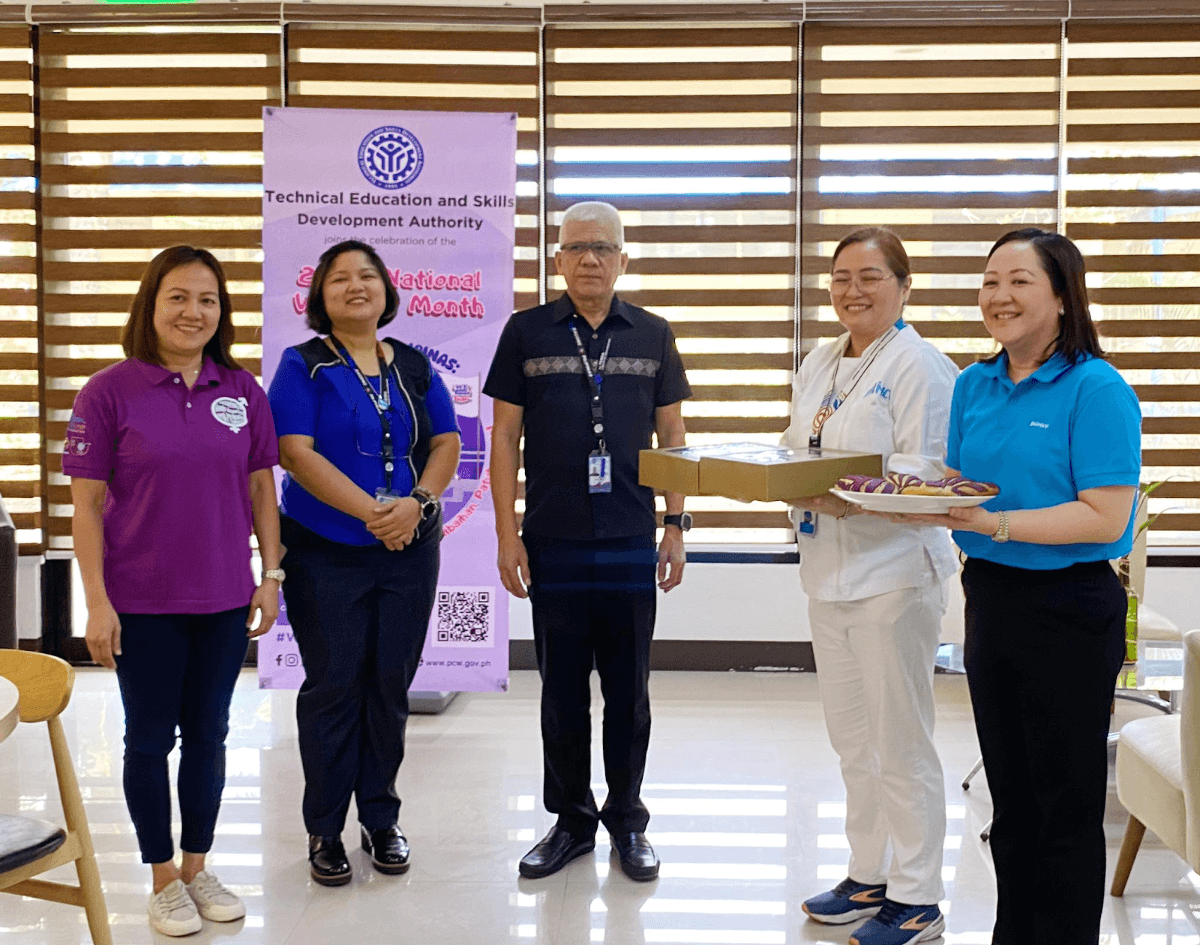
Pilmico and TESDA Champion Women and Sustainability
AboitizEyes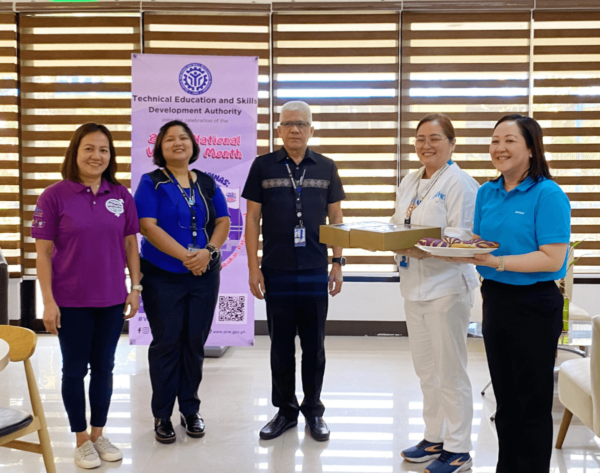
In celebration of National Women’s Month, the Technical Education and Skills Development Authority Women’s Center (TESDA Women’s Center), headed by TESDA Women’s Center Chief Mylene Somera, partnered with Pilmico Foods Corporation (Pilmico) to launch their newest signature bread, “Juana Banana.” They named the bread after Juana, to represent all Filipino women.
Chef Carla Valencia, Pilmico’s Technical Service Manager for Flour, created the recipe for “Juana Banana.” The bread is made with bananas, including their peels and vegetables like malunggay, pumpkin, and carrots, making it a healthier pastry alternative. It is baked with premium quality “Sun Moon Star” bread flour from Pilmico, filled with butter, and topped with a crispy cookie crust.

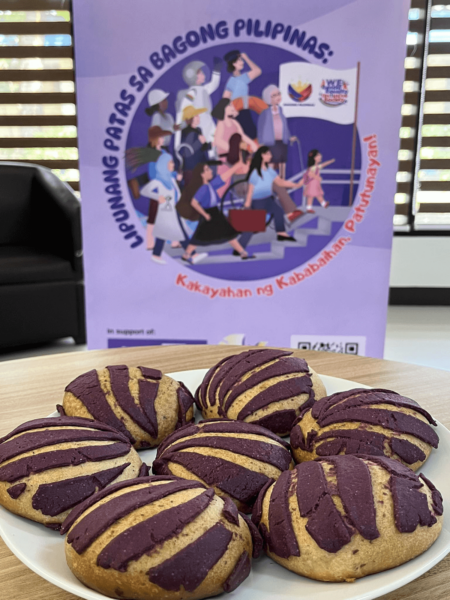
According to Chef Carla, she developed the banana bread recipe with sustainability in mind. “For two years, I’ve been trying to incorporate banana peels in bread during some of our TESDA Women’s Center baking demonstrations. We usually throw out the banana peels, but many people have used them for viands and banana chips. To reduce food waste and make the recipe more sustainable, I also came up with the idea of using banana peels in developing “Juana Banana,” she shared.
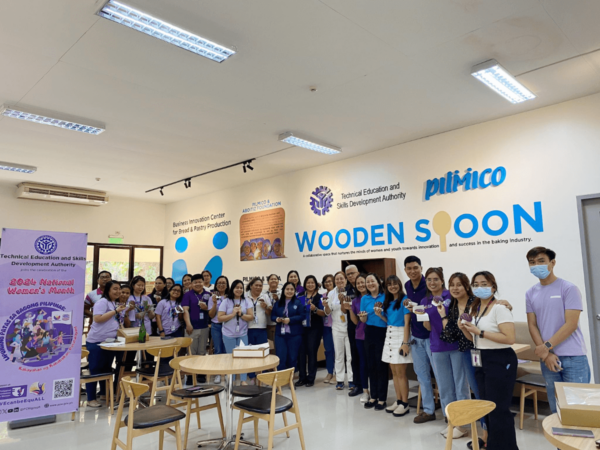
On March 8th, International Women’s Day, Cafe Juana at TESDA Women’s Center offered a complimentary “Juana Banana” bread to customers who wore any purple color in their attire. The bread will also be added to Cafe Juana’s menu moving forward.
“This is a very welcome opportunity for TESDA to learn how to do these innovations, using food waste and turning it into something that can help generate income for our constituents. Moving forward, we want TESDA to be more innovative sa lahat ng bagay (in all aspects). We want to think out of the box,” said Mr. Abe Arenga, TESDA Chief of Staff.
A Flourishing Partnership Since 2018
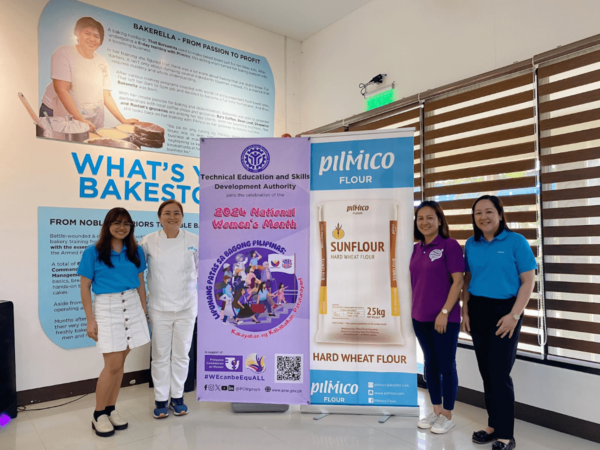
The TESDA Women’s Center prioritizes women enrollees, implementing a 9:1 ratio of women to men in the classes. As part of the Wooden Spoon Business Innovation program, newly certified TESDA trainees are equipped with baking skills and knowledge and encouraged to continue learning about entrepreneurship and developing their business mindset.
Mylene Somera expressed her gratitude to Pilmico for their flourishing partnership throughout the years, “We thank Pilmico and the Aboitiz Foundation for supporting TESDA Women’s Center’s programs. We’ve been partners since 2018 when we launched the Wooden Spoon Training Center. The launch is very timely since we’ve been thinking, paano magkakaroon ng collaboration (ang TESDA at Pilmico) in terms of product development and it’s finally here. (The launch is very timely since we’ve been thinking about how TESDA and Pilmico can collaborate further in terms of product development, and it’s finally here),” she said.
The UNESCO-UNEVOC recognized Wooden Spoon Training Center in the TESDA Women’s Center as one of ten business innovation centers in 2019, acknowledging its commitment to innovation, especially in entrepreneurship.
##
About Pilmico & Gold Coin Group
Pilmico and Gold Coin Group is the integrated agribusiness and food company of the Aboitiz Group.
In the Philippines, Pilmico Foods Corporation (Pilmico) is an industry leader in the flour and feeds manufacturing sector and a top pork meat supplier. Its four divisions, Flour, Feeds, Farms, and Trading, enable the growth of its stakeholders through consistent quality products and unmatched supporting services.
Their customer reach has also expanded to the Asia Pacific region through Gold Coin Management Holdings, Inc. (Gold Coin), a pioneer in animal nutrition and manufacturing scientifically-based animal feeds in Asia.
With over 3,700 partners across multiple facilities in eight countries, Pilmico and Gold Coin Group form one of Asia’s largest privately-owned agribusinesses.
Know more about Pilmico at pilmico.com/.
For further queries on this Press Release, please contact:
FRANZIA DE LEON
Brand and Reputation
PILMICO FOODS CORPORATION
franzia.deleon@aboitiz.com | +63 917 809 5825

Pioneering Sustainability: Mactan-Cebu Airport Earns First Carbon Accreditation in the Philippines
AboitizEyesMactan-Cebu International Airport, run by Aboitiz Infracapital GMCAC, recently secured distinction as the first Philippine airport with Level 1 Airport Carbon Accreditation from Airports Council International, signifying a pivotal achievement in its ongoing pledge to environmental sustainability.
MCIA has aligned its 2023 sustainability programs and will continue to align its efforts with the United Nations’ Sustainable Development Goals and global targets to safeguard our environment from further degradation. The goal is to operate the airport sustainably through the implementation of projects that promote the company’s long-term viability while preserving resources for the future.
The recognition not only highlights MCIA’s responsible approach to carbon emissions but also positions it as a leader in fostering eco-friendly practices within the aviation industry.
Airport Carbon Accreditation, the sole globally endorsed certification program for carbon management in airports, autonomously evaluates and acknowledges airports’ endeavors in managing and reducing their carbon emissions.
Stefano Baronci, Director General of ACI Asia-Pacific and Middle East, extends congratulations to Mactan-Cebu International Airport for embarking on their sustainability journey. ”We congratulate Mactan-Cebu International Airport for Level 1 certification in the Airport Carbon Accreditation Programme. Mactan-Cebu International Airport’s commitment to contribute towards our industry’s common vision of achieving net zero emissions by 2050 brings the total number of Asia-Pacific and Middle East Airports joining ACA to 84. ACI APAC and MID is eager to work closely with Mactan-Cebu and the Philippines Authorities in the future to mitigate the impacts of climate change.”
Mactan-Cebu International Airport, run by Aboitiz Infracapital GMCAC (AGMCAC) secures distinction as the first Philippine airport with Level 1 Airport Carbon Accreditation from Airports Council International, signifying a pivotal achievement in its ongoing pledge to environmental sustainability.
MCIA has aligned its 2023 sustainability programs and will continue to align its efforts with the United Nations’ Sustainable Development Goals and global targets to safeguard our environment from further degradation. The goal is to operate the airport sustainably through the implementation of projects that promote the company’s long-term viability while preserving resources for the future.
The recognition not only highlights Mactan-Cebu International Airport’s responsible approach to carbon emissions but also positions it as a leader in fostering eco-friendly practices within the aviation industry.
Airport Carbon Accreditation, the sole globally endorsed certification program for carbon management in airports, autonomously evaluates and acknowledges airports’ endeavors in managing and reducing their carbon emissions.
Stefano Baronci, Director General of ACI Asia-Pacific and Middle East, extends congratulations to Mactan-Cebu International Airport for embarking on their sustainability journey. ”We congratulate Mactan-Cebu International Airport for Level 1 certification in the Airport Carbon Accreditation Programme. Mactan-Cebu International Airport’s commitment to contribute towards our industry’s common vision of achieving net zero emissions by 2050 brings the total number of Asia-Pacific and Middle East Airports joining ACA to 84. ACI APAC and MID is eager to work closely with Mactan-Cebu and the Philippines Authorities in the future to mitigate the impacts of climate change.”
Athanasios Titonis, CEO of Mactan-Cebu International Airport, not only celebrates this accomplishment but also affirms an ongoing commitment to sustainability, emphasizing that efforts in this direction will continue to evolve and expand. “We take great pride in the global recognition of our initial strides toward becoming a more sustainable airport. As the pioneering airport in the Philippines acknowledged for its sustainability endeavors, we aspire to set a precedent for others in the aviation industry in the country to embrace similar practices.”
“Understanding that achieving Carbon Neutrality is a journey that requires time and dedication, we are fully committed to innovating new methods to further diminish our carbon emissions” he added.
Julius Neri, General Manager of Mactan-Cebu International Airport Authority, expresses optimism that this achievement will serve as inspiration for the aviation industry in the Philippines to emulate and adopt similar sustainable practices. “We find ourselves in a fortunate era where advancements in technology and innovation enable us to actively reduce our carbon emissions, aiming ultimately for a net-zero outcome—an opportunity not available in the preceding decades. It is important that we seize this opportunity and leverage it to collectively make a positive impact on our planet. Our sustainability journey is unfolding step by step, and we aspire to attain a higher level of accreditation in the near future.”
Anticipate several initiatives, including minimizing the usage of non-biodegradable waste within airport premises, introducing infrastructure projects to lower energy consumption, incorporating renewable energy sources, and establishing systems to minimize and recycle water consumption.
For more information on Mactan-Cebu International Airport, please visit https://www.mactancebuairport.com.
###
About Mactan-Cebu International Airport
Mactan-Cebu International Airport (MCIA) is the second-largest airport in the Philippines. It serves over 11 million foreign and local passengers yearly, making it the second busiest airline hub in the country. MCIA is operated by a Filipino-led private consortium between Aboitiz InfraCapital, GMR Group of India, and Megawide Construction Corporation under a concession agreement with the Philippine Government.
With its strategic location and world-class facilities, MCIA aims to establish itself as the leading tourism gateway of the country with exceptional travel experience, connecting the world to the Philippines. The Airports Council International accredits MCIA for Airport Customer Experience, the country’s first, and Airport Health Accreditation.
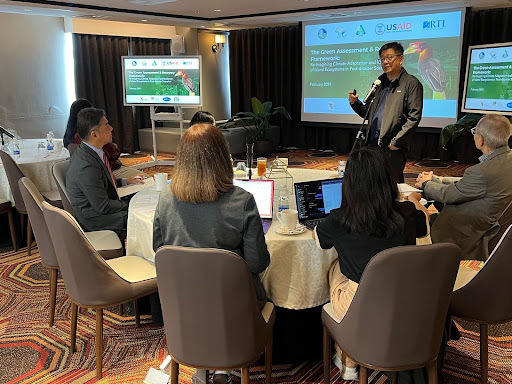
Carbon PH Coalition Advances Towards Low Carbon Economy with Collaborative Efforts
AboitizEyes
Manila, Philippines – The Carbon PH Coalition, a consortium of leading private enterprises dedicated to sustainable practices and Nature-Based Solutions (NBS) in the Philippines, convened on February 12 for another enlightening session as part of its ongoing educational series. Hosted by the United States Agency for International Development’s (USAID) Sustainable Interventions for Biodiversity, Oceans, and Landscapes (SIBOL) Project, the session saw significant progress towards establishing a Low Carbon Economy through collaborative efforts.
Mr. Mon Isberto, SIBOL’s Private Sector Engagement Advisor, stressed the importance of local policies in propelling the nation towards sustainability. He highlighted the pivotal role of policy frameworks in this endeavor. Ms. Ginggay Hontiveros-Malvar, Chief Reputation and Sustainability Officer of Aboitiz Group and Aboitiz Foundation President, reiterated the coalition’s mission to facilitate knowledge sharing and investment exploration within the carbon market. She emphasized the coalition’s commitment to disseminating insights on NBS investments and advocating for policies conducive to environmental conservation.
Ms. Hontiveros-Malvar stated, “The coalition’s pivotal role as a catalyst for collaboration and policy advocacy is instrumental in driving substantive change in sustainability practices. Our focus remains on forging partnerships, influencing policies, and effecting meaningful transformations towards a sustainable future.”
Dr. Neil Aldrin Mallari from the Center for Conservation Innovations Philippines (CCI PH) delivered a compelling presentation on the potential of SIBOL’s Post-Odette Green Recovery Program in Palawan. His insights resonated with participants, highlighting the transformative impact of carbon credit generation and stressing the importance of employing time-tested, science-based approaches in forest building and rewilding efforts.
Meanwhile, Mr. Tito Ilagan, SIBOL’s esteemed Partnership Development Specialist, unveiled plans for the forthcoming launch of investment packages aimed at supporting the restoration of damaged eco-sites in Palawan. Scheduled for February 15, 2024, in Puerto Princesa City, this event signifies a significant stride in the Coalition’s commitment to environmental sustainability and community resilience.
These initiatives underscore the Carbon PH Coalition’s unwavering dedication to driving positive change and cultivating a greener, more sustainable future. Companies eager to contribute to this noble cause and collaborate with the Coalition are encouraged to register and become integral members of this transformative movement.
###
For further inquiries regarding this press release, please contact:
Lloyd Revilla
Media Relations Manager
Aboitiz Equity Ventures, Inc.
lloyd.revilla@aboitiz.com | +63920 – 6162 186
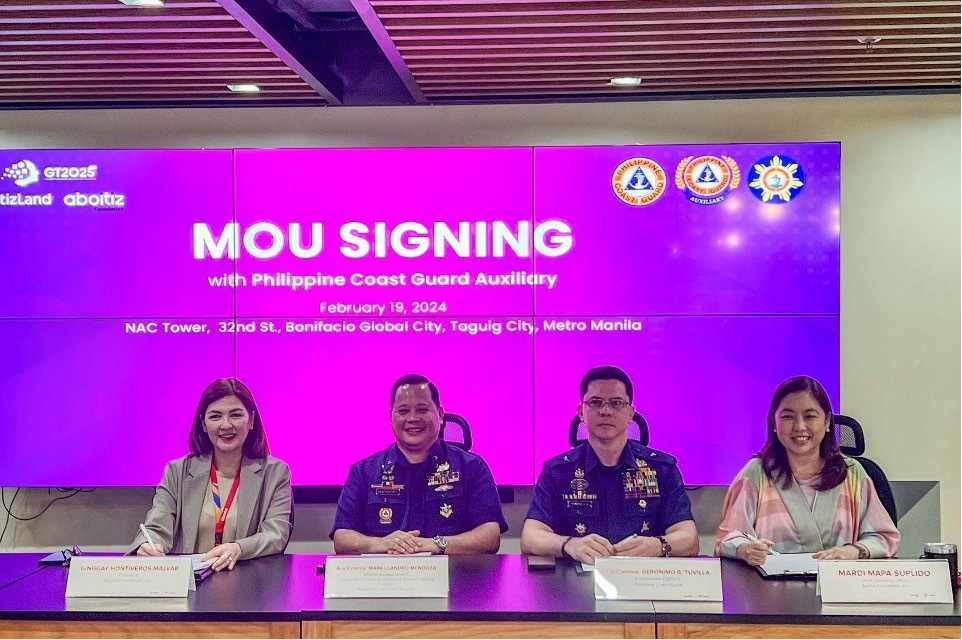
Aboitiz Partnerships: Joining Forces for Community Progress with Philippine Coast Guard Auxiliary
AboitizEyes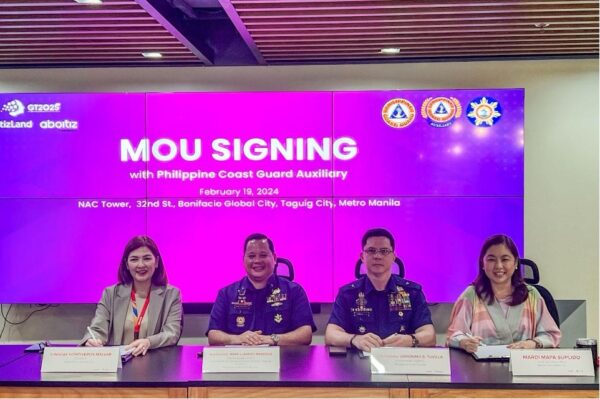
In a significant stride toward enhancing community development, the Philippine Coast Guard Auxiliary (PCGA), Aboitiz Land, and Aboitiz Foundation formalized their commitment through the signing of a Memorandum of Understanding (MOU) on February 19, 2024. This pivotal collaboration underscores a collective dedication to addressing critical elements of environmental sustainability, livelihood enhancement, and disaster response.
Led by Aboitiz Land, the partnership acknowledges the pivotal role organizations play in sustaining ecosystems and livelihoods, emphasizing the promotion of biodiversity and responsible environmental practices.
Environmental sustainability stands as a central pillar of the MOU, reflecting a shared resolve to preserve the diverse ecosystems of the Philippines. By harnessing the expertise and manpower of the PCGA in conjunction with Aboitiz’s resources, the alliance aims to implement initiatives that safeguard clean surroundings and promote sustainable practices.
Furthermore, the collaboration extends its reach to encompass livelihood enhancement programs, aiming to empower local communities. Leveraging the PCGA’s grassroots reach and Aboitiz’s corporate social responsibility initiatives, the partnership seeks to bolster economic well-being through skill development programs and sustainable economic activities.
The Philippine Coast Guard Auxiliary has long stood as a steadfast partner to Aboitiz Land, particularly in its pawikan conservation projects and outreach and disaster response efforts in Luzon and Cebu.
Recognizing the paramount importance of effective disaster response, the partners commit to fortifying community resilience. Through joint training programs and infrastructure development, the collaboration endeavors to enhance disaster preparedness and response mechanisms in local communities.
The signing of the memorandum underscores the vital role of public-private partnerships in addressing national challenges. By prioritizing environmental sustainability, livelihood enhancement, and disaster response, the partnership sets a commendable example of how collective endeavors can positively impact Filipino communities, nurturing their well-being and resilience amidst evolving challenges.
###
About Aboitiz Land
For over two and a half decades, Aboitiz Land has remained steadfast in its commitment to pioneering innovative solutions that facilitate the dream of homeownership for countless Filipinos through its vibrant master-planned communities. As it celebrates this milestone, the company sets its sights on broader horizons, poised to extend its impact through the creation of even more innovative and fully integrated communities across the nation. As a subsidiary of the esteemed Aboitiz Group, Aboitiz Land draws strength from a century-long legacy of driving both business and societal advancement, underpinning its dedication to fostering thriving communities for generations to come.
For further information about Aboitiz Land, please visit www.aboitizland.com.
For any inquiries regarding this press release, please contact:
ERIKA MAGUAD-TIBAYAN
Senior Manager, Marketing and Branding
ABOITIZ LAND, INC.
mags.maguad@aboitiz.com | +63 917 310 4435
ARAH MAY PONGOS
Branding Associate
ABOITIZ LAND, INC.
arah.pongos@aboitiz.com | +63 921 966 9767

Empowering Futures: Aboitiz Group’s Game-Changing Investment in Data Science Education
AboitizEyesIn 2019, marking a significant milestone in its centennial anniversary celebration, the Aboitiz Group made a transformative contribution to education and innovation by donating US$10 million to the Asian Institute of Management (AIM). This generous donation paved the way for the establishment of the Aboitiz School of Innovation, Technology, and Entrepreneurship (ASITE), a cutting-edge institution focused on advancing knowledge in data science and innovation within the region.
At the heart of this philanthropic endeavor lay a commitment to empower aspiring individuals like Gilbert Chua, a former government employee with a passion for data science. Gilbert, a trained physicist from the University of the Philippines, recognized the unparalleled opportunity offered by AIM to pursue a master’s degree in data science, a field crucial for the evolving landscape of technology and entrepreneurship.
However, the financial burden of pursuing such an esteemed program seemed daunting, with fees totaling around P1.5M. Fortunately, Gilbert’s aspirations aligned with the Aboitiz Group’s vision for fostering talent in data science. Through a collaborative effort between the Aboitiz Group and AIM, Gilbert was awarded a scholarship loan that alleviated the financial constraints of his educational journey.
Reflecting on the support he received, Gilbert expressed his admiration for the forward-thinking approach of the Aboitiz Group.
“I was surprised because I did not know of any other group at the time that was so willing to collaborate so deeply or bet so much on data science since it’s still an emerging field. To me that spoke of how forward-thinking Aboitiz was,” Gilbert said. “It was a no-brainer for me to accept the grant. The terms were extremely generous—it was zero percent interest, paid for almost 90% of the cost, and had even more generous repayment terms.”
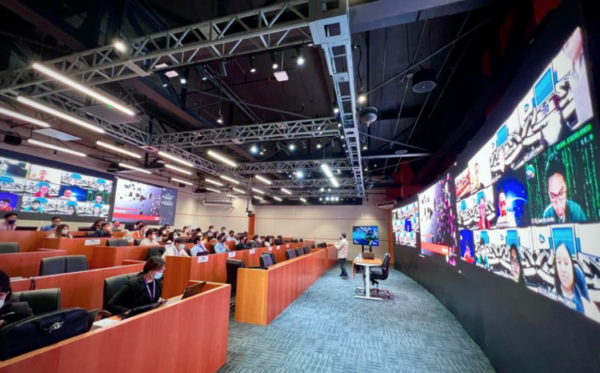
The Aboitiz Group’s monumental contribution to AIM was a strategic endeavor aimed at bridging the gap in data science and innovation on both local and regional scales. This historic donation facilitated the establishment of degree programs, student loan initiatives, and the enhancement of educational facilities, exemplifying the Group’s commitment to nurturing future leaders in these critical fields. Among the beneficiaries of this partnership was Gilbert Chua, who emerged as a pioneer in the data science landscape.
Sabin M. Aboitiz, President and CEO of the Aboitiz Group, expressed profound satisfaction in witnessing the tangible impact of their vision through the success stories of individuals like Gilbert Chua. He underscored the Group’s belief in investing in people as drivers of progress, emphasizing Gilbert’s journey from scholar to data scientist as a testament to the transformative power of education and the Group’s unwavering dedication to empowerment.
Following his graduation with a Master of Science in Data Science degree, Gilbert transitioned to the Aboitiz Group, which had recently established its own data science and artificial intelligence arm, Aboitiz Data Innovation, Inc. (ADI). Positioned as a pivotal component of the Group’s strategic roadmap to evolve into the Philippines’ premier techglomerate by 2025, ADI embodies the Group’s commitment to embracing a startup ethos and leveraging emerging technologies, including data science.
Gilbert’s decision to join the Aboitiz Group was driven by his perception of the conglomerate as a beacon of integrity in the realm of data science. His firsthand experience of the Group’s substantial investment in collaboration with AIM reinforced his conviction that the Group’s commitment to data science was genuine and resolute.
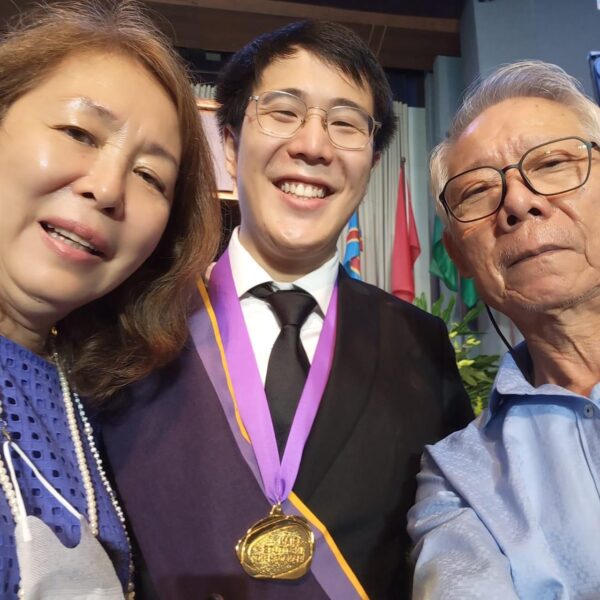
In his current role as Principal Data Scientist at ADI, Gilbert finds fulfillment in a position that values his expertise and provides opportunities for personal and professional growth, enabling him to make a meaningful impact, particularly for his family. His ability to contribute to their well-being serves as a poignant reminder of the transformative power of education and strategic career choices. Gilbert’s gratitude for the opportunities afforded to him reflects a profound sense of fulfillment and a desire to give back to those who supported him along his journey.
About Aboitiz Equity Ventures
Aboitiz Equity Ventures, Inc. (AEV) leads diverse investments including power, banking, food, and emerging fields like data science. Committed to a transformative journey, AEV aims to pioneer as a techglomerate, leveraging technology and entrepreneurship for sustainable growth. With a legacy spanning five generations, the Aboitiz Group champions positive change. Renowned for excellence, AEV upholds strong corporate governance and corporate social responsibility through the Aboitiz Foundation, earning accolades regionally.
For further queries on this Press Release, please contact:
Mikkhail Guioguio
Media Relations Officer
Aboitiz Equity Ventures, Inc.
mikkhail.guioguio@aboitiz.com | +63917 – 6309 – 298
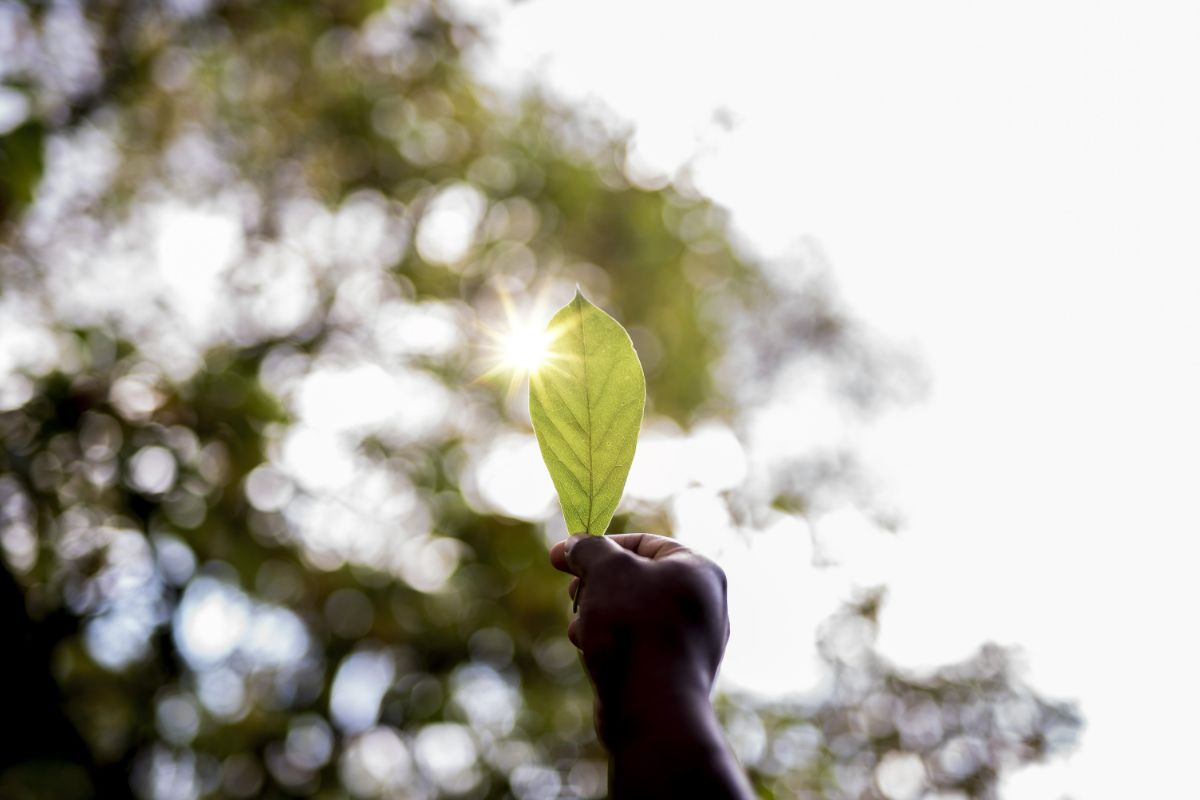
Decoding Carbon Reduction: Strategies, Challenges, and The Aboitiz Way
AboitizEyesThe Philippines ranks 6th globally in this year’s Climate Change Performance Index (CCPI). The country has made notable achievements in Greenhouse Gas emissions and Energy Use, boasting a per capita emission rate of 2.27 tCO2eq. This shows the country’s commitment to lower the carbon footprint.
Although some positive signs exist, worries remain regarding the alignment of the National Determined Contribution with effective climate policy due to insufficient fiscal measures and carbon reduction strategies. The Energy Plan aims for 40% renewable energy by 2040, but the introduction of nuclear energy adds complexity. In a move for global sustainability, the Philippines elevates its carbon reduction goal to 75% by 2030, highlighting heightened ambition, targeted strategies, and associated challenges.
Understanding Carbon Reduction and Carbon Offset
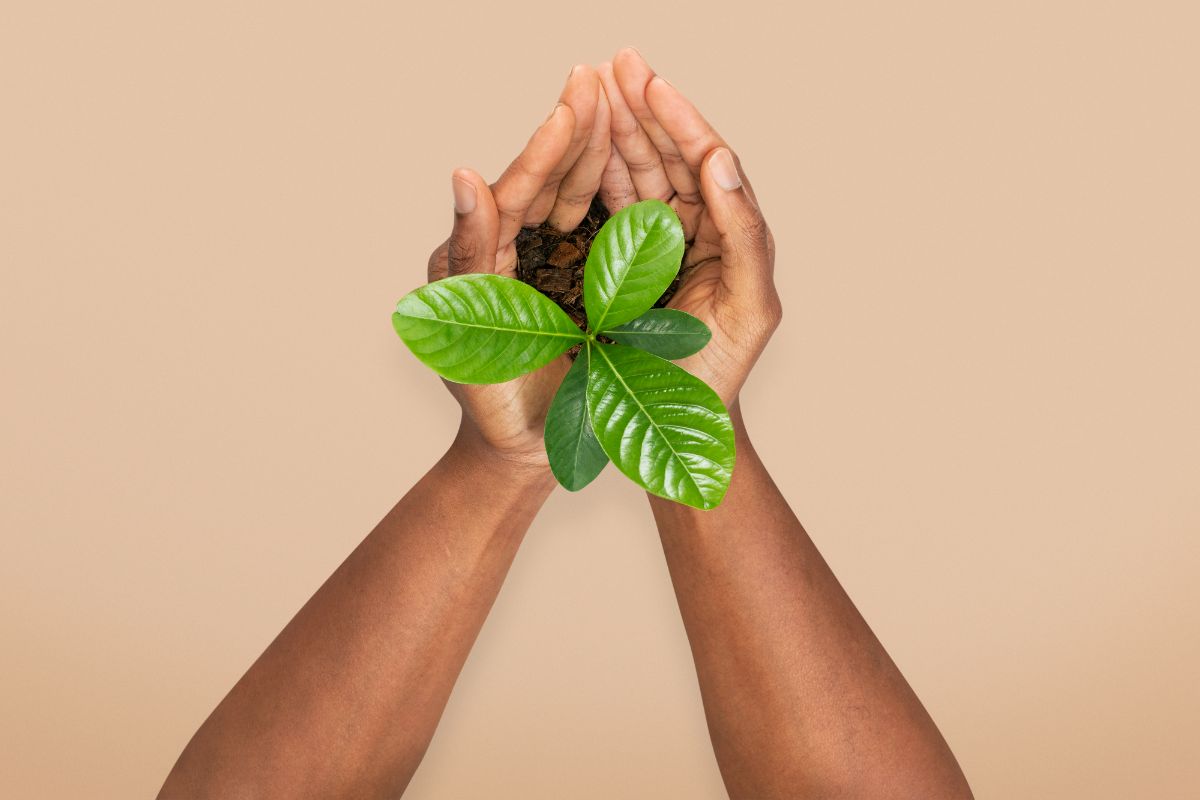
Carbon reduction encompasses collective strategies aimed at minimizing the release of carbon dioxide (CO2) and other greenhouse gas (GHG) emissions into the atmosphere. This concerted effort is critical in mitigating climate change since GHGs contribute significantly to global atmospheric warming, leading to diverse environmental and societal consequences.
In Philippine CSR discussions, both “carbon reduction” and “carbon offset” play pivotal roles in climate change adaptation strategies. Carbon reduction involves direct actions to lower emissions, such as transitioning to renewable energy sources. Conversely, carbon offset seeks to compensate for unavoidable emissions by investing in external initiatives, like reforestation projects.
The Role of Business and Individuals in Carbon Reduction
Individuals share responsibility for carbon reduction strategies, impacting emissions through daily choices from transportation to consumption. The Aboitiz Group, a leading techglomerate in the Philippines, is a prominent player in this collective effort. Prioritizing people, the planet, and profit, they embrace a holistic sustainable approach aligned with the UN’s Sustainable Development Goals.
Actively engaging in Corporate Social Responsibility, the group collaborates with stakeholders, implements circular economy practices, adheres to high energy efficiency standards, and anticipates future trends. Recognizing that intention alone is insufficient for change, their commitment aligns with environmental responsibility, regulatory compliance, economic viability, and current consumer expectations.
Challenges to Carbon Reduction
Despite efforts, several hurdles hinder its seamless implementation of carbon reduction. Overcoming these obstacles is crucial in achieving effective and sustainable carbon reduction strategies for a greener future.
Clear and Scientific Plans
To achieve net-zero carbon emissions, companies need meticulous, science-based plans. Aboitiz Equity Ventures, the first Philippine signatory to TCFD, demonstrates a laudable climate strategy. Their proactive approach involves assessing impacts, aligning governance, disclosing emissions, and integrating climate risks into risk management. Ongoing enhancements and a commitment to material disclosures underscore transparency and adaptability, crucial for long-term sustainability.
Scientific Framework to Be Used

Adherence to established scientific frameworks is crucial for the credibility and effectiveness of carbon reduction initiatives. Aligning with stringent methodologies ensures that organizations contribute meaningfully to the global effort to combat climate change.
Green Funding
Limited budgets and high costs hinder SMEs in achieving net-zero goals. Innovative financing solutions, including partnerships and government incentives, are essential for providing the needed financial support for emission reduction efforts.
Stakeholder’s Decision
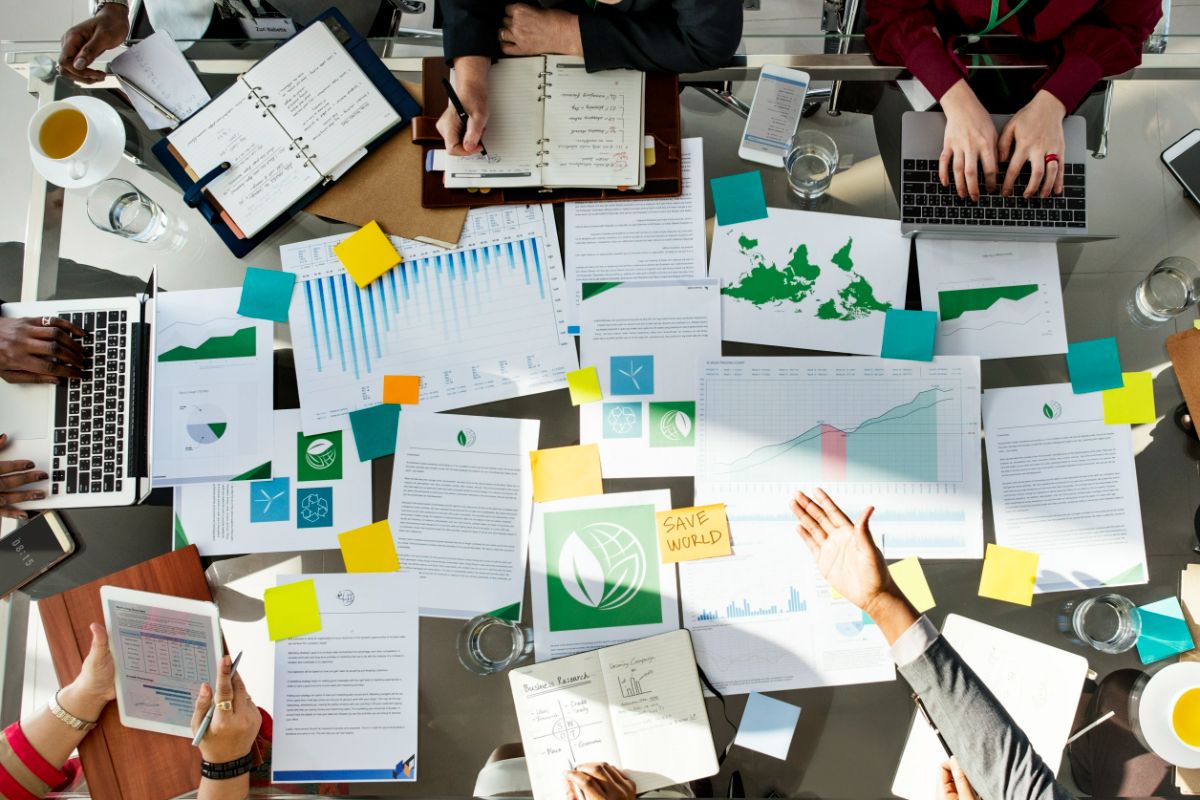
Leadership commitment drives cultural change. Public promises, ambitious goals, and global alignment foster a collective commitment to carbon reduction. Engaging partners and technology innovators strengthens the resolve for meaningful progress.
Net-Zero Supply Chains
Organizations must make difficult decisions, such as replacing suppliers when necessary, to ensure that external environments experience revolutionary changes in pursuit of a truly impartial stance.
Carbon Reduction Action – the Aboitz Way
In the global push to reduce carbon emissions, the Aboitiz Group shines as a notable sustainability example.
Widely praised for its dedication to environmental preservation, the group stands as an influential model for businesses seeking to achieve a balance between profit and sustainability.
Sustainable Supply Chain Practices
Aboitiz Land’s Coastal Cleanup Amihan initiative, held in San Juan, Batangas, emphasizes their commitment to Sustainable Supply Chain Practices and carbon reduction.
Focused on tackling plastic waste, a significant aspect of their supply chain, the initiative engages local communities, government agencies, and the private sector to promote awareness and responsibility for sustainable consumption. The team sets a commendable example of proactive environmental responsibility and sustainable business practices demonstrating the Aboitiz Way towards a better future.
Renewable Energy Targets
AboitizPower is at the forefront of a substantial shift towards renewable and sustainable energy, an essential part of its carbon reduction initiatives. Aligned with global efforts to combat climate change, the company intensifies its focus on renewable energy targets, aiming to reach 4,600 megawatts (MW) of clean energy capacity by 2030.
This ambitious plan positions AboitizPower as a leader in the renewable energy sector, contributing significantly to the Philippines’ goal of achieving a 35% renewable energy share in the energy mix by 2030. Through strategic investments, including Aboitiz Renewables Inc. and various renewable projects, AboitizPower is actively shaping a sustainable energy future.
Energy Efficiency Standards
The Aboitiz Group prioritizes environmental responsibility through strict Energy Efficiency Standards, crucial for carbon reduction. The team actively minimizes business impact via efficient energy use, emissions reduction, and responsible resource management.
AboitizPower focuses on renewable energy transition, emphasizing optimal resource use. Initiatives like Race to Reduce and No Impact Challenge showcase team-driven efforts, reinforcing a culture of energy-conscious practices. Group-wide monitoring of energy and water consumption, coupled with eco-efficient improvements, stresses commitment to higher Energy Efficiency Standards for a sustainable, low-carbon future.
Key Takeaway
Aboitiz’s proactive initiatives demonstrate a holistic commitment to a sustainable, low-carbon future. As the world calls for urgent climate concerns, such efforts set a vital precedent for businesses seeking a balance between profit and environmental responsibility, advocating for a more sustainable and resilient future.
Follow Aboitiz’s lead in generating a sustainable, low-carbon future. Contact our team today.

What Is Carbon Footprint: How it Affects the Environment
AboitizEyesOverview
- The global rise in carbon dioxide emissions highlights the urgent need for comprehensive carbon reduction strategies.
- Aboitiz exemplifies corporate commitment, urging individuals and businesses worldwide to join the journey toward sustainability, reduce their carbon footprint, and contribute to a cleaner, greener planet.
In a world shaped by our every action, it becomes critical to reflect on the footprint we leave behind – the carbon footprint. At its core, this encapsulates the sum of carbon dioxide emissions directly and indirectly associated with our activities, including the combustion of fossil fuels in manufacturing and transportation to the production of electricity linked to the goods and services we consume. Essentially, it is a measure of the environmental impact we imprint on the Earth through our daily actions and the choices we make.
In 2022, the Philippines recorded approximately 146.5 million tons of carbon dioxide emissions from energy consumption, representing a notable increase from the previous year’s total of 135.8 million tons. These statistics highlight the significance of understanding what a carbon footprint is and the pressing need for addressing carbon emissions in the country and aligning strategies with global sustainability goals.
What is a Carbon Footprint?
While the terms ‘carbon footprint’ and ‘greenhouse gas emissions’ are often used interchangeably, they have subtle distinctions. A carbon footprint is the total amount of greenhouse gases, such as carbon dioxide (CO2), methane (CH4), and nitrous oxide (N2O). This is emitted directly and indirectly by an individual, organization, event, product, or process. It measures the impact on the environment throughout a product or service’s entire lifecycle, from material production to end-of-life disposal.
On the other hand, greenhouse gas (GHG) emissions serve as a critical indicator of an entity’s impact on the climate, focusing on gases released into the atmosphere, and are often used in business reporting. They form the bedrock of climate change, trapping heat in the atmosphere and steering our planet towards environmental disruption. Both metrics are necessary for evaluating and addressing the environmental impact of individuals, organizations, and processes.
How is Carbon Footprint Measured?

Measuring your carbon footprint means figuring out how much greenhouse gases you release into the environment each year. We do this by looking at different gases and converting them into a standard measure, usually tons of carbon dioxide equivalent (CO2e). This method enables a uniform and comparable assessment of activities, providing insights into their relative environmental impact.
For instance, daily activities such as walking generally have a smaller carbon footprint compared to driving, showing that small choices can make a difference. Moreover, the carbon footprint extends to diverse aspects of our lives, including shipping packages and the food we consume.
One big source of greenhouse gas emissions is agriculture, particularly because of methane production. This emphasizes the importance of using sustainable practices in farming to reduce our overall impact on the environment.
The Impact of Carbon Footprint
The rising levels of carbon dioxide (CO2) in the atmosphere significantly contribute to climate change, posing severe threats to the planet’s ecosystems.
Climate Change Implications
Carbon dioxide functions as a heat-trapping agent, capturing solar and Earth’s surface heat and releasing it into the atmosphere. The burning of fossil fuels and deforestation have led to a staggering 40% increase in atmospheric CO2 since the 18th century, reaching levels unseen in 14 million years.
The consequences of elevated CO2 levels include heightened ocean acidification, rising sea levels, intensified storms, increased species extinctions, food scarcity, and exacerbated economic inequality. This cumulative impact manifests globally as a direct result of escalating carbon emissions.
Environmental Consequences
One of the significant environmental consequences of escalating carbon emissions is the alteration of atmospheric composition. The National Aeronautics and Space Administration (NASA) emphasizes that while increased carbon dioxide levels can enhance water-use efficiency in crops and mitigate some climate-induced yield losses, they also lead to imbalances in essential nutrients like iron, zinc, and protein. The delicate equilibrium of our ecosystems is disrupted, creating a domino effect that permeates every aspect of our environment.
The impact of carbon emissions on biodiversity further exacerbates the environmental consequences. Indigenous species face the brunt of changing habitats, with some disappearing entirely while others struggle to survive. The delicate balance of ecosystems is disrupted, triggering a chain reaction that echoes throughout the interconnected web of life.
Practical Steps to Reduce Carbon Footprint
In the pursuit of a sustainable future, both individuals and corporations must take proactive steps to apply carbon reduction strategies. These practical steps can help everyone contribute to a cleaner and greener planet.
Individual Actions
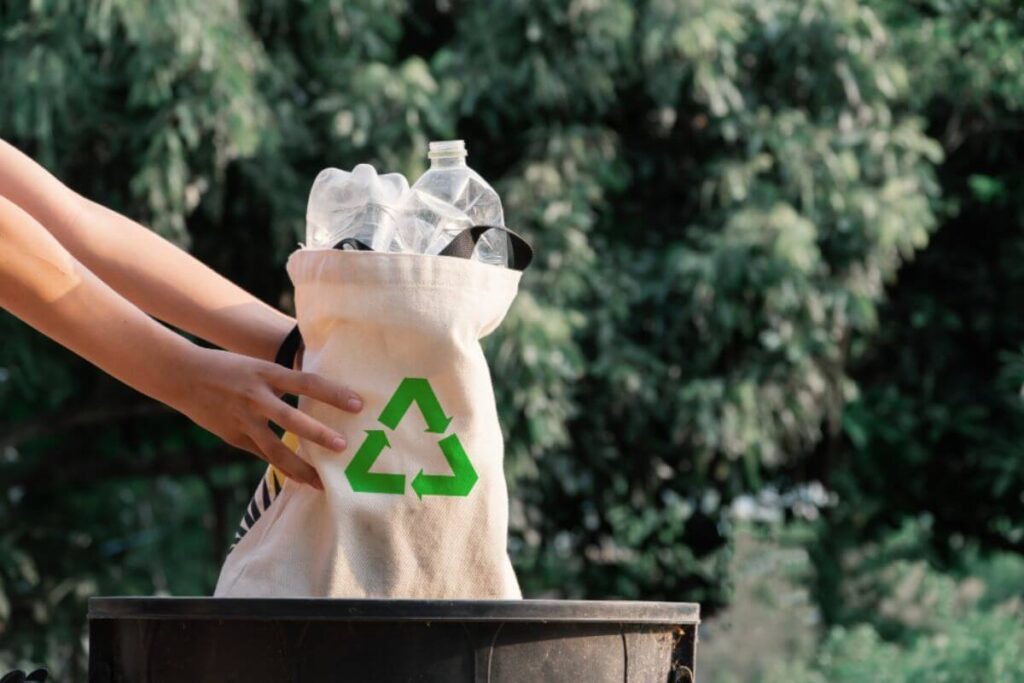
To help the planet, individuals can do simple things in their daily lives. Embracing the three Rs— Reduce, Reuse, Recycle — is a fundamental step to minimize waste and foster a circular economy. Energy conservation practices, such as turning off lights and utilizing energy-efficient appliances, contribute significantly to reducing electricity consumption.
Choosing sustainable transportation options like walking, biking, carpooling, or using public transport, along with the consideration of electric or hybrid vehicles, helps cut down carbon emissions associated with commuting. Additionally, reducing paper usage by embracing digital communication and documentation practices supports a paperless lifestyle, making a positive impact on the environment.
Corporate Actions
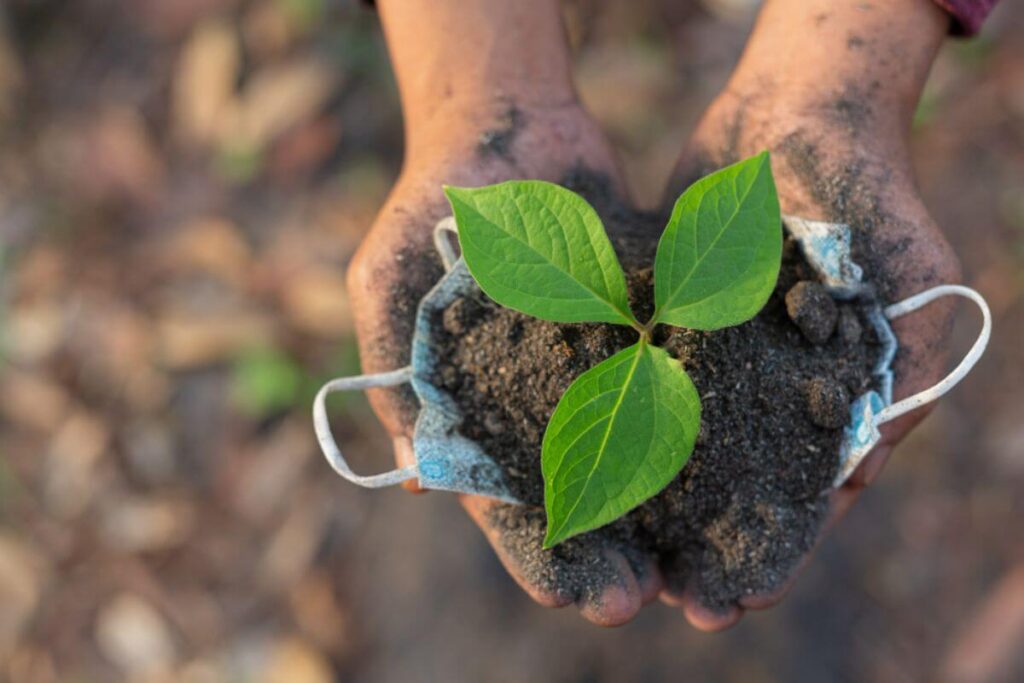
Corporations, as key contributors to environmental impact, have a crucial role in mitigating their carbon footprint. A prime example of this commitment is exemplified by AboitizPower subsidiary Therma South, Inc. (TSI), in collaboration with Ramon Aboitiz Foundation, Inc. (RAFI), and other project partners. Despite the challenges posed by the pandemic, TSI continues to make significant strides toward its ambitious goal of planting 1 million trees by 2024 through its Carbon Sink Management Program (CSMP).
In tandem with these efforts, Aboitiz Land, another arm of the Aboitiz Group, demonstrated its commitment to environmental preservation through the Coastal Cleanup Amihan initiative along the San Juan shores in Batangas. Spearheaded by Aboitiz Land, Aboitiz Foundation Inc. (AFI), and Communities Organized for Resource Allocation (CORA) Nonprofit, this coastal cleanup initiative addressed the escalating pollution challenges faced by San Juan’s coastal areas due to plastic waste.
Key Takeaway
In a world grappling with escalating carbon emissions and their far-reaching consequences, it is essential to understand and address what a carbon footprint is. This metric measures the environmental impact of our choices, both as individuals and companies.
Join Aboitiz in the journey towards a sustainable future! Embrace eco-conscious practices, reduce your carbon footprint, and contribute to environmental preservation. Connect with us and be a part of the positive change our planet urgently needs.
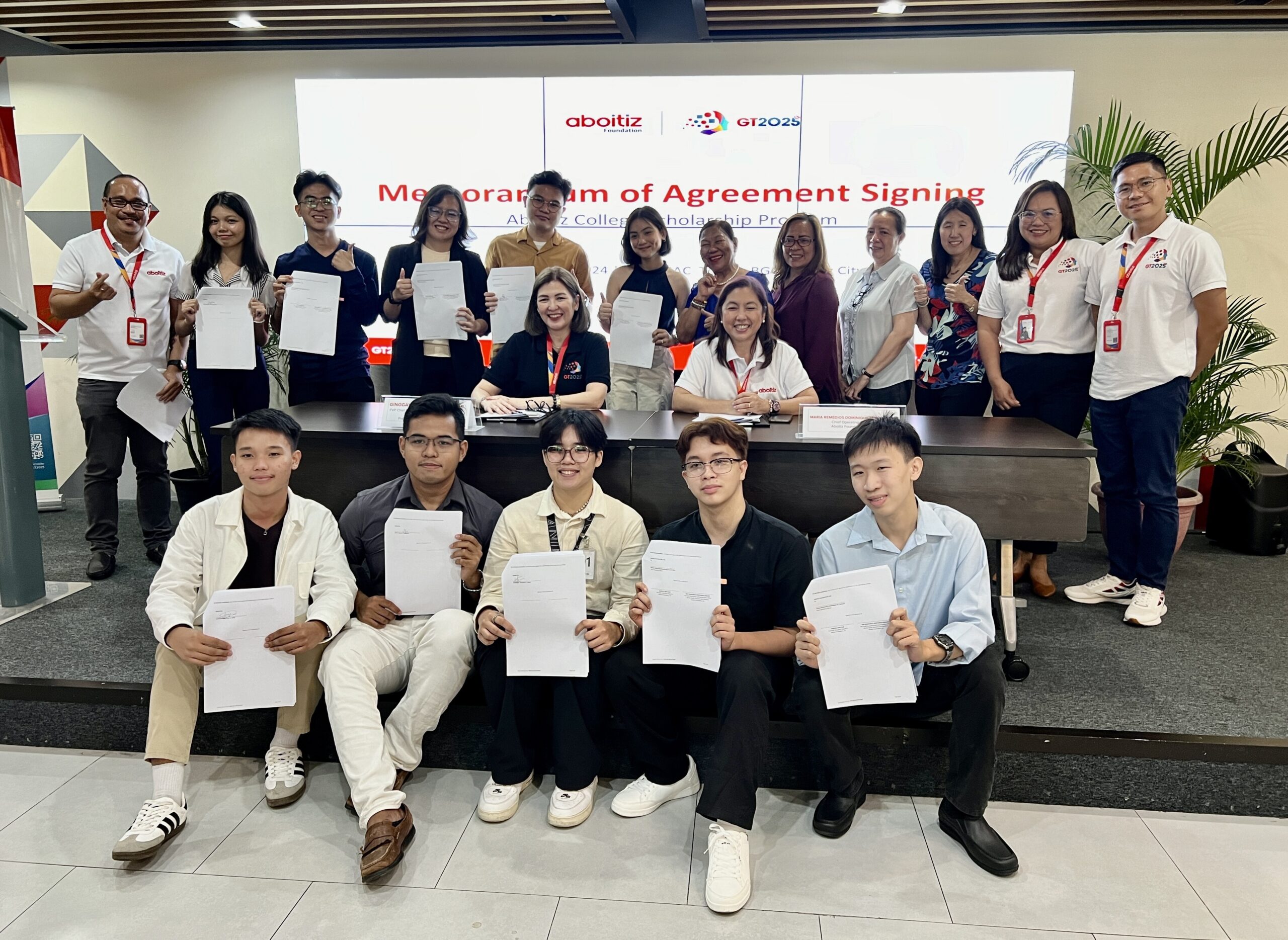
Aboitiz Foundation Empowers Future Leaders with New Scholarships
AboitizEyesAs part of the Aboitiz Group’s ongoing commitment to enhancing access to quality education in the country, Aboitiz Foundation Inc. (Aboitiz Foundation) recently welcomed a new cohort of scholars under the Aboitiz College Scholarship Program (ACSP). The program envisions these scholars as future leaders, embarking on a transformative journey that will not only impact the present but also shape the future.
In a memorandum of agreement (MOA) signed on January 15, Aboitiz Foundation President Ginggay Hontiveros-Malvar and Chief Operating Officer Mardi Mapa-Suplido, along with the new batch of scholars and their parents, reiterated the group’s dedication to fostering the students’ development and empowering them to become influential forces in society.
The ACSP is designed to provide deserving students with educational opportunities by offering financial assistance and supporting their overall growth and development through learning sessions and internships.
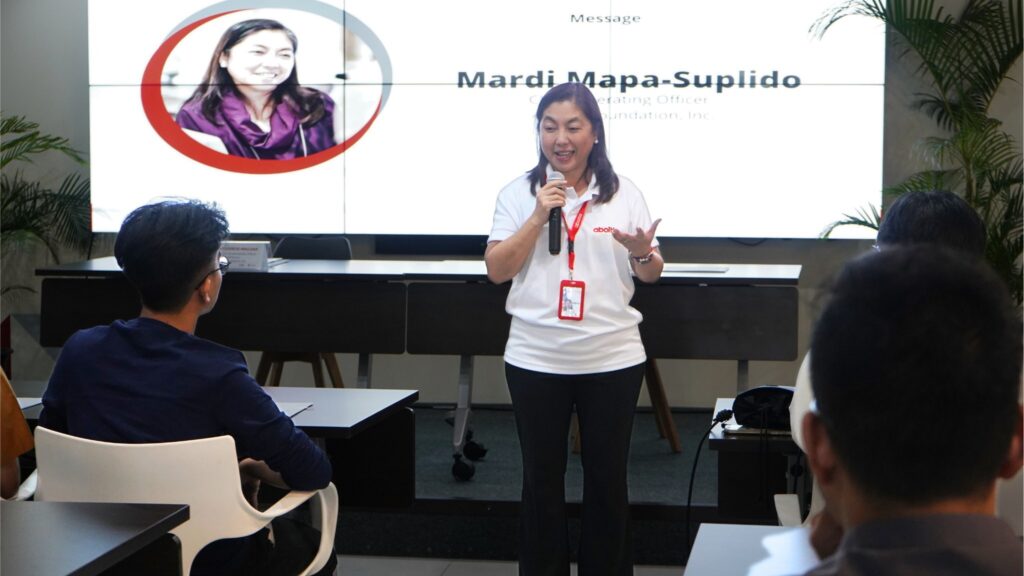
Aboitiz Foundation President Ginggay Hontiveros-Malvar expressed pride and hope for this new generation of leaders, stating, “Their promise and potential assure me our greatest, most purposeful chapters lie ahead.”
With this year’s addition of 10 scholars, the program now benefits over 180 students. Scholars receive comprehensive support, including yearly tuition fees, monthly allowances, academic excellence incentives, and board review fees for qualified scholars.
Heleina Marei Ong, an Industrial Engineering beneficiary, highlighted the scholarship’s impact on her journey, describing it as more than financial support—a catalyst for transformation and achievement.
The Aboitiz Group Scholarship Program sets a significant standard for private sector efforts promoting fair access to education, ethical leadership, and sustainable development of human resources. Aligned with the United Nations Sustainable Development Goal 4, the ACSP advocates for accessible and fair quality education while supporting continuous learning opportunities for everyone.
About Aboitiz Foundation
Established in 1988, the Aboitiz Foundation is the corporate foundation of the Aboitiz Group. Its purpose is to drive change for a better world through programs on education, enterprise development, and the environment.
Evolving from one-time donations to carefully designed programs, the Foundation empowers beneficiaries to pursue their aspirations. Through Aboitiz Business Units, the Foundation implements CSR 2.0 projects that create safe, empowered, and sustainable communities aligned with the Group’s core competencies, scalable nationwide, and deeply impactful on the communities they serve.
For further inquiries, please contact:
Lloyd Revilla
Media Relations Manager
0920 6162186
lloyd.revilla@aboitiz.com
Aboitiz Foundation, Inc.
